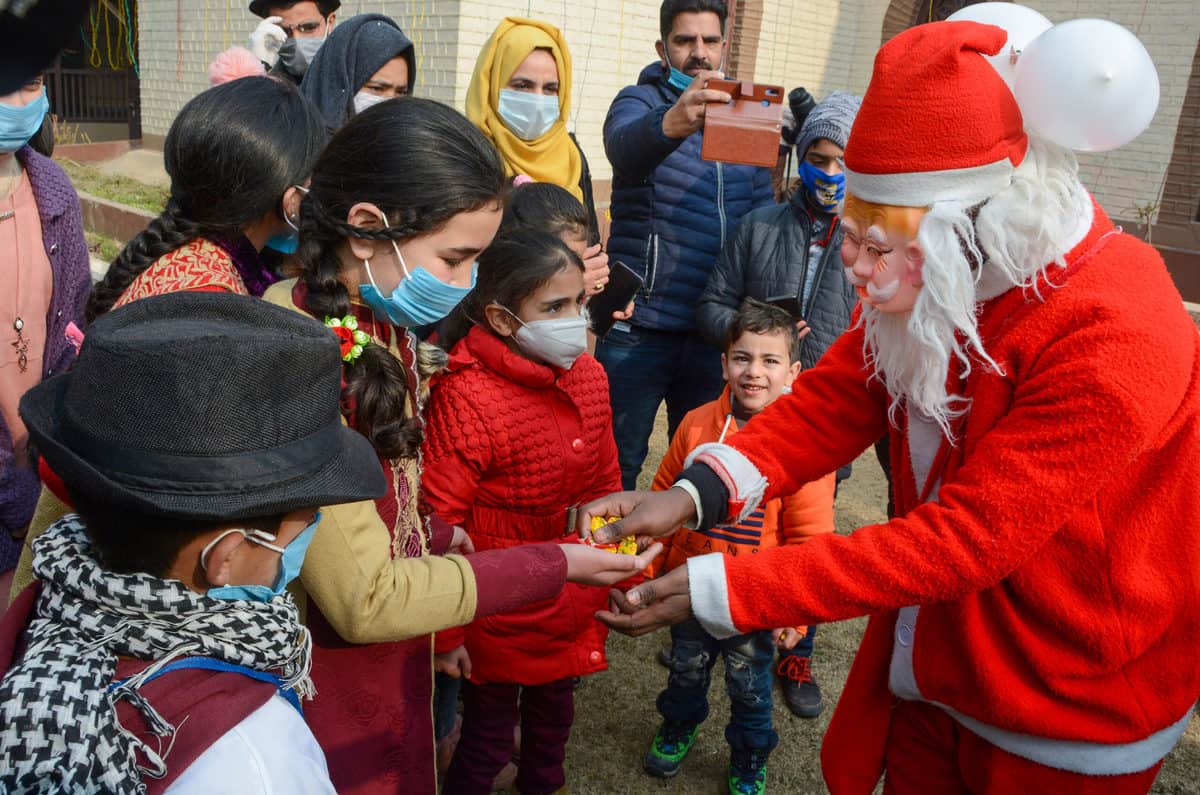
It is the evening before Christmas, that time of the year when happiness is spread and good wishes are exchanged. I am seated at a Cafe Coffee Day joint, a few minutes of walk from my house, sipping green tea. There are not many customers at the Cafe. Two young women, in jeans and jackets, sit at the nearby table. A bespectacled, pony-tailed man, in jeans and full sleeved shirt with headphones, works at his laptop at another table. An English song plays at low volume, interrupted regularly by a female voice announcing the festive season’s bonuses for the clients.
I try to savour the kindness of the moment, cocooned as I am away from the hustle bustle outside.
Normally I bring a book to read in the cafe’s quiet corner. But today I decided to just sit and reflect. I wanted to leave my mind be at peace, think positive thoughts and count the blessings, not the adversities, life brought in for me this tumultuous year.
Is it not a great kindness that I am alive when I have seen many close friends exiting this world, consumed as they were by the crazy Coronavirus? Is it not a boon that I have a work to do, even if from home, whereas many in my profession and elsewhere lost their jobs as recession hit and economy crashed? Is it not a miracle that I came out of the hospital alive, cured and smiling after defeating Covid-19 a couple of months ago while many others at the same hospital were not so lucky?
Small mercies need to be celebrated and I had decided to do that, alone and uninterrupted, undisturbed.
I was lost in these beautiful thoughts when I saw two teenaged girls walk in through the transparent glass door. They were hardly 14 or 15 and in shabby clothes. Actually I should not try to identify them with their kapda but I can’t help as story cannot be said emphatically unless I describe how they looked. Their hair frazzled, face tense, eyes a bit sunken, they looked desperately in hurry. If they were not clutching bundles of polythene bags used to collect dry waste, they could have easily passed off as beggars. These girls were not beggars; they were desperate youngsters trying to survive in a society which is increasingly becoming cruel. How? I will tell in a minute.
As the girls walked in and began approaching customers from table to table, I saw the cruel side of a seemingly educated, empowered middle class man. While other customers didn’t pay any heed to the girls’ pleas to buy polythene bags, the pony-tailed man with headphones began shouting. Looking at the boy taking orders and preparing bills at the counter, the pony-tailed man said: “Arre bhikhari logon ko andar kaise aane dete ho (how can you allow beggars in?)”. Alarmed, everyone at the Cafe looked at the two “intruders”. One of the girls couldn’t swallow the crassly insensitive, insulting remark. “Aap ameer log ho, lekin hum bhikari nahin hain. Nahin lena hai to mat lo, lekin hamein bhikari mat kaho (If you are rich, we are not beggars either. If you don’t want to buy, don’t do it but don’t call us beggars),” one of the girls said and walked out. The anger with which the girl snubbed the haughty man made me freeze. Ok, they had entered the privileged space without permission and breached the silence and security that the rich take for granted, but they were not begging. They may have been children of a lesser God, but not criminals.
Pandemic-induced lockdown has aggravated adversity. The poor has become poorer. Many formerly well off families have been forced to survive on doles. In such a condition, and it is worsening by the day, the poor deserve a helping hand. They don’t expect mocking and insulting remarks from those who still have not been hit hard.
As someone who survived on the modest bada-pav, the staple diet of the commoners in the city, for months, years ago, I know what it means to be hungry. Hunger breaks your confidence, it assaults on your self-esteem. All your great degrees and citations earned at the university look worthless if you are jobless and hungry. You start cursing yourself if you know you are qualified and yet have to depend on crumbs thrown by someone in your way.
It sounds good that people should be atma nirbhar (self-reliant). But how? Where is the social bond that helps build the culture of atma-nirbharta (self-reliance)? The bridge building mechanism which pulls people out of poverty?
We must foster the culture of care and sharing. We must not look at someone earning by selling small things with derision and disrespect.
In the New Year which is knocking at our doors we must resolve that no one working to eke out a living–however small maybe the work–is looked down upon. And even if a merchandise seller has entered the air-conditioned privileged space like a Cafe, or a restaurant, he/she should not be humiliated by hurling epithets at them.
Embrace the poor this New Year.
Mohammed Wajihuddin, a senior journalist, is associated with The Times of India, Mumbai. This piece has been picked up from his blog.

